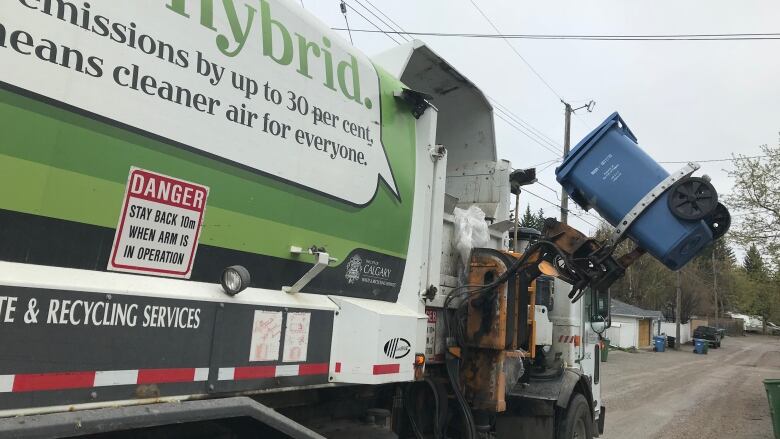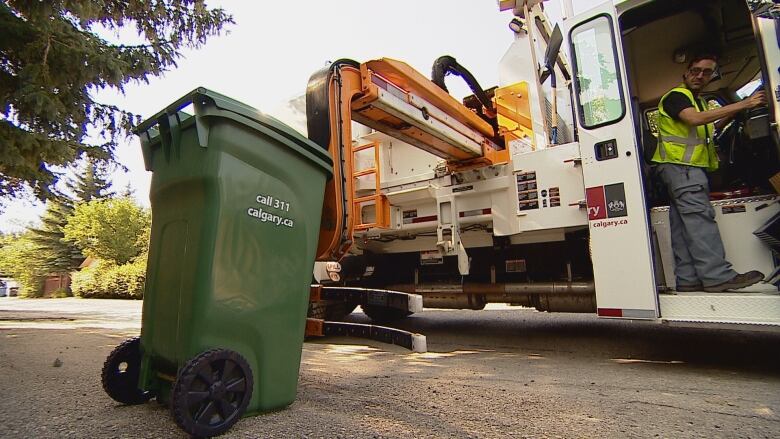City says it will suspend bin pickup for sloppy recyclers
Putting the wrong item in the wrong bin can cost you and your neighbours

If households don't take the time to separatetrash fromrecycling and compost, they might findthe cityrefusing to pick up theirbins that week.
Sharon Howland of Calgary's waste and recycling services said most residents follow the rules, but the thousands who don't are inflicting unintended consequences on their neighbours.
"If there's contamination in a green bin or a blue cart and it's not identified before it goes into the truck and it ends up at the facility that's contaminated material," Howland said. "Ultimately, what happens is that contamination is affecting the quality of the material at that facility which costs Calgarians in the long run as it's reflected in their program fees."
Contaminated material is anything that can't be recycled or composted. That includes hazardous materials, styrofoamor packaging that still has food residue in blue bins, or plastic bags in green bins.

Sometimes it can be sorted out, but other times it contaminates the other materials, lowering the value of the recyclables it'sprocessed with.
The city collects waste from 325,000 households per week.
16 per centuse blue bins incorrectly
Howland said spot checks of neighbourhoods are conducted across the city. Waste staff undertake contamination audits to see exactly how much incorrect material ends up in each bin. They've found that 16 per cent of all households are putting the wrong items in blue bins (recycling), and seven per cent of households are putting the wrong stuff in green bins (organic waste).
That leads to between two and five per cent of composted material being unacceptably contaminated, and 10 to 15 per cent of blue cart material, thanks to items that aren't able to be screened out at the facility like small chunks of plastic bags that have broken down.
"At some point, the contamination starts to overwhelm us and the machinery can't get it out and the sorters can't get it out," she said.
Program fees based on contamination levels
That contamination costs Calgarians. The waste program runs on a multi-year budget process and sets program fees based on an estimation of how much material will be unusable.
The monthly blue cart fee is $8.50, and the green cart fee is $6.50.
So, the city is undertaking an education campaign to keep its recycled materials clean.
"If our drivers identify bins with incorrect materials in them, what they'll do is stop, have a look, and they'll put a tag on the cart itself that indicates what material shouldn'thave been in there and what needs to change.If it's a significant amount of material or it's very hazardous, they will turn the cart sideways and leave it uncollected that day."
Howlandsaid the vast majority of households will have fixed the problem by the following pickup day, and repeat offenders are addressed through outreach, like having the city foreman paying households a personal visit.
The city also has a website, where residents can search items in an A-Z listing to establish what goes where.
With files from Reid Southwick












_(720p).jpg)


 OFFICIAL HD MUSIC VIDEO.jpg)
.jpg)



























































































